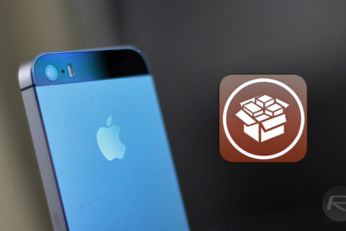Those of us carrying iPhones and iPads around are sometimes all too quick to point the finger at those with Android devices while waxing lyrical about how their phones and tablets are so susceptible to malware. That's probably the truth if everything is left as nature intended, but if you start to jailbreak that aforementioned iPhone or iPad, then all bets are off.
It's a familiar story, unfortunately, but once again we're here to warn Android users that their smartphones and tablets could theoretically be recording video and taking pictures without them knowing, with the output then being uploaded to a remote server without any indication whatsoever.
Security is a hot button topic right now, and with good reason. With government agencies trying to scoop your data just as much as the cyber criminals we're all told keep sniffing our credit card details, gone are the days of simply burying our heads in the sand and hoping it'll all be OK.
The iOS jailbreak malware, identified as Unflod.dylib or simply Unflod, looks to have originated from China. Here's how to find it on your iPhone or iPad, and then subsequently remove it.
Such is the open source nature of the Android ecosystem, that it presents itself as an attractive prospect to malware makers, and other such unscrupulous entities. It's often the case that potentially dodgy apps circulate outside of the confines of the Google Play Store, and thus, by avoiding third-party download services, Android users can remain relatively safe. However, renowned security firm Trend Micro has just discovered a new type of bug that can secretly turn devices into digital currency miners, and worryingly, at least two Play Store apps are thought to have been affected.
A new Remote Administration Tool for Google’s Android platform has become available in the darkest corners of the Internet. This particular type of tool is bundled into a malware package that has the ability to claim control of the devices of those who use an app that has been infected, effectively turning the unwitting smartphone or tablet into a spyware zombie.
It's well documented that when it comes to mobile malware, Android is by far the biggest target, and as such, many of the big-name security firms have come through with apps and measures to help protect the many millions using Google's flagship OS. Malwarebytes is the latest to join the fray, having just introduced a rather versatile app that not only looks out for potentially malicious intrusion, but also helps take care of your privacy.
Despite having improved dramatically in terms of overall usability during the course of the last year thanks to that Project Butter update with Jelly Bean 4.1, Android's malware situation remains very much its achilles heel. It seems that scarcely a week goes by without some kind of outbreak or discovery by a security firm, and today, a worrying security hole has been discovered.
A new OS X malware uses standard extensions such as .pdf and .doc to disguise malicious files as basic, harmless subjects. Discovered by F-Secure, the spoof technique uses a special Unicode character found in file names that gives an app the appearance of a standard document file, and although the threat level is quite low at this point, any malware and outbreak should be treated with a dose of respect and vigilance.
Ever since the start of modern computers, malware has been an omnipresent issue. Viruses, Trojans, rootkits, spyware, keyloggers and several others of the like continue to assault your computing devices all the time, looking for vulnerabilities and loopholes in your defenses to get through. Generally, users have become aware enough to deploy some form of protection on their desktops and notebooks, and while infections continue to plague the computing world, they’re significantly reduced in impact.


